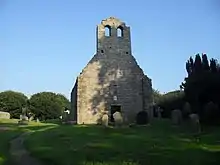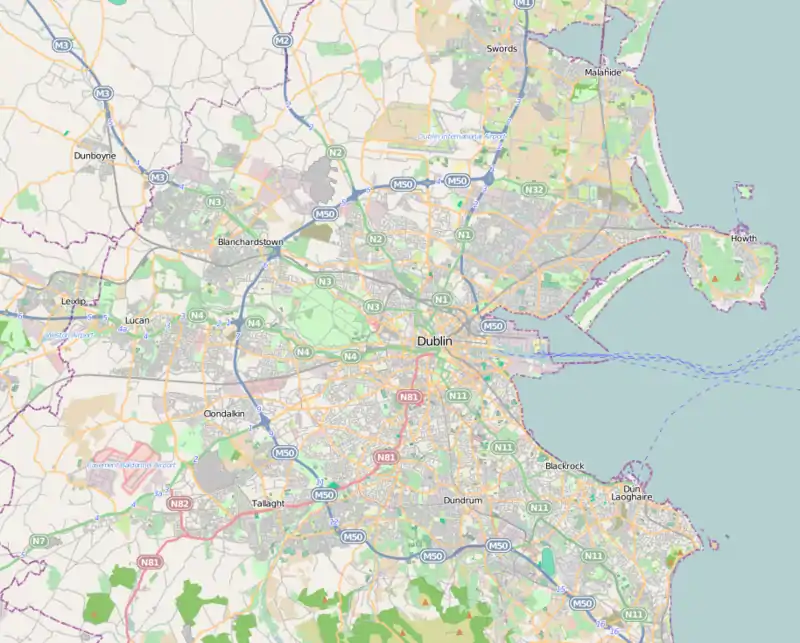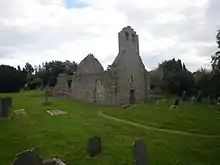Kill of the Grange
Kill of the Grange[1] is an ancient religious site in County Dublin, Ireland and a National Monument.[2]
| Kill of the Grange | |||||
|---|---|---|---|---|---|
| Kill o' the Grange, Clonken | |||||
Cill na Gráinsí, Cluinchenn | |||||
 | |||||
 Kill of the Grange | |||||
| 53.281377°N 6.160982°W | |||||
| Location | Kill of the Grange, Deansgrange, Blackrock, County Dublin | ||||
| Country | Ireland | ||||
| Denomination | Pre-Reformation Catholic | ||||
| History | |||||
| Founded | 11th century | ||||
| Architecture | |||||
| Style | Norman | ||||
| Years built | 11th century | ||||
| Closed | 16th century | ||||
| Specifications | |||||
| Length | 17 m (56 ft) | ||||
| Width | 7 m (23 ft) | ||||
| Materials | Stone | ||||
| Administration | |||||
| Diocese | Dublin | ||||
| |||||

Location
Kill of the Grange lies 1.7 km (1.1 mi) inland, on the south side of Dublin Bay. In modern times it is surrounded by housing developments and is found in Deansgrange, Blackrock, County Dublin.
Structures
The church is associated with St Finnian of Clonard and dates from the 11th century. Parts may date to the 6th century as they are similar to remains found at Glendalough. The church was originally a simple oblong (now the nave) and a chancel and belfry were later added.[3]
Originally known as Clonkeen (Irish: Cluinchenn), it is now known as Kill of the Grange, meaning "church of the monastic grange."
There is also a bullaun (about 25 cm (9.8 in) across) and holy well on the site.
History
The site was part of the possessions of the Priory of the Holy Trinity (later Christ Church Cathedral, Dublin) and their records give a vivid picture of the 14th-century monastic site at Clonken / Kill o' the Grange, describing the construction of a kiln house with thatched roof and wattle and daub walls, and the grange itself being built from timber bought from the native Irish (probably in the Dublin Mountains).[4]
References
- "Cill na Gráinsí/Kill of the Grange".
- "megalithomania: Kill Of The Grange (Dublin) :: Church :: Visit notes".
- "Churches".
- The Archaeology of Medieval Ireland (2002), Terry B. Barry, Routledge. (pp. 6-7)